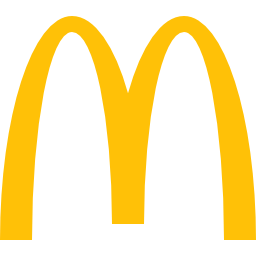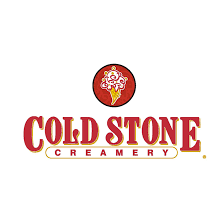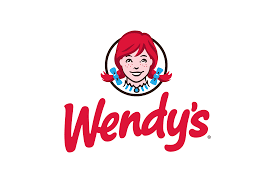Dairy Queen Franchise in 2025: Costs, Fee & FDD
Explore the financial landscape of Dairy Queen, an iconic franchise with over 7,000 global locations. Dive into key investment details, franchise costs, and profitability insights to determine if this quick-service powerhouse is your next business venture.

Table of Contents:
Dairy Queen (DQ) is an iconic American franchise that has been delighting taste buds since 1940. Founded by John Fremont “J.F.” McCullough and his son, Alex, alongside their friend Sherb Noble, Dairy Queen revolutionized the frozen treat industry with their original soft-serve recipe. Over the decades, DQ has become synonymous with happiness and nostalgia, often sparking memories of summer days and sweet indulgence. Its significance in the quick-service industry is undeniable, and it’s a brand that people of all ages recognize and love.
At the heart of Dairy Queen’s offerings are its signature soft-serve ice cream treats—think Blizzards, sundaes, and Dilly Bars. But that’s just the beginning. DQ also serves up burgers, chicken strips, and other fast-food favorites. The brand’s core customers are families and individuals seeking a sweet treat or quick meal. DQ’s versatility means it caters to a wide range of tastes, making it a go-to for both dessert lovers and fast-food fans.
Dairy Queen has grown into a global powerhouse, with over 7,000 locations in more than 20 countries. On any given day, DQ serves millions of customers, reinforcing its status as a beloved brand. Whether you’re in the U.S., Canada, or the Middle East, you’re likely to find a Dairy Queen nearby, making it a truly international franchise.
Franchisees can expect a solid support system from Dairy Queen, including comprehensive training programs that cover everything from daily operations to marketing strategies. The brand also offers continuous support and innovation to help franchisees succeed. With its rich history, diverse menu, and strong global presence, Dairy Queen remains a compelling choice for those looking to invest in the quick-service industry.
Dairy Queen Franchise Insights
- Dairy Queen sells over 175 million Blizzards annually, with Oreo consistently ranking as the most popular flavor.
- Dairy Queen has a global reach with more than 7,000 locations across over 20 countries, showcasing its widespread appeal and international presence.
- DQ’s Fan Food menu innovation continues to drive growth, with new items like the A1 Steakhouse Burger and the Drumstick Blizzard keeping the brand fresh and exciting for customers.
- Dairy Queen’s 137:1 loan success ratio means that for every 137 SBA loans paid in full, only one loan is charged off, highlighting the franchise’s strong performance and reliability. This track record of financial responsibility adds confidence for potential franchisees considering an investment.
Dairy Queen Franchise Key indicators
Growth YOY (%)
1%
vs industry 1%
Total U.S. Franchised Units
4,000+
3-Year Failure Rate
5%
vs industry 11%
Sales-to-Investment ratio
0.7:1
How much does it cost to open a Dairy Queen franchise?
Understanding the potential investment size and capital requirements is crucial when considering opening a Dairy Queen franchise. These financial commitments, including initial franchise fees, equipment costs, and ongoing operational expenses, impact the feasibility and profitability of the venture. Thoroughly evaluating these factors ensures that potential franchisees are prepared for the financial responsibilities and can make informed decisions about their ability to sustain and grow the business, ultimately contributing to long-term success.
Min & Max Investment
Opening a Dairy Queen franchise involves several key costs, which are outlined in Item 7 of the Franchise Disclosure Document (FDD). You can see a breakdown of the costs to open a Dairy Queen below from the most recent Item 7 below:
| Type of Expenditure | Minimum Investment | Maximum Investment |
|---|---|---|
| Initial Franchise Fee | $45,000 | $45,000 |
| ALTA Survey and/or Site Investigation Report | $0 | $5,000 |
| Initial Training Fees and Costs | $1,200 | $11,800 |
| Travel and Living Expenses for Training Programs | $23,000 | $42,950 |
| Building, Construction, and Leasehold Improvements | $800,000 | $1,400,000 |
| Construction Consultation Services | $0 | $7,500 |
| Building Plans, Design Intent Plans, and Architectural Seal | $15,000 | $60,000 |
| Equipment (includes signs and point-of-sale systems) | $550,000 | $700,000 |
| Training Inventory | $6,000 | $12,000 |
| Opening Inventory | $20,000 | $35,000 |
| Utility Deposits, Business Licenses, and Government Charges | $4,000 | $17,000 |
| Attorneys' Fees | $1,000 | $8,000 |
| Additional Funds - 3 Months | $51,000 | $198,000 |
| TOTAL | $1,516,200 | $2,542,250 |
Item 7 in the Franchise Disclosure Document (FDD) is the “Estimated Initial Investment” section. It outlines the total costs a franchisee can expect to incur when starting a franchise, including the initial franchise fee, equipment, inventory, real estate, and other startup expenses. This section is crucial because it provides potential franchisees with a detailed understanding of the financial commitment required, helping them assess affordability and plan their investment strategy effectively.
Required Capital
To open a Dairy Queen franchise or a similar quick-service restaurant, you’ll need to meet certain financial requirements to ensure you can handle the initial investment and ongoing costs. Here’s a breakdown of the required capital, liquid assets, and net worth typically needed:
- Initial Investment You’ll generally need around $1.5 million to $2.5 million in initial capital, covering construction, equipment, inventory, and other startup costs. This amount can vary based on the location and size of the restaurant. Assuming that you will finance your franchise investment, you should plan to have 20% of the total investment amount in the form of equity (cash) for the investment.
- Liquid Assets Requirement Franchisees should have at least $400,000 to $750,000 in liquid assets. This ensures you have enough cash or easily accessible funds to cover initial expenses and support operations during the startup phase.
- Net Worth Requirement Your net worth should be at least $750,000 to $1.5 million. This is to demonstrate your overall financial health and ability to manage the financial responsibilities of owning a franchise.
How much does a Dairy Queen franchise owner make?
Calculating the salary of a Dairy Queen franchise owner involves analyzing gross sales to determine total revenue, assessing operational efficiency to understand profit margins, and accounting for franchisor fees and additional expenses such as rent, utilities, and payroll. Effective management of these factors can significantly impact the profitability and financial success of a Dairy Queen franchise owner. This comprehensive financial analysis helps estimate net profits, from which the owner’s salary can be derived. A clear understanding of these factors ensures accurate salary projections and financial planning for sustainable business operations.
Dairy Queen Revenue & Gross Sales
Based on most recent analysis, Dairy Queen franchises have a median gross sales of $1,340,366. This solid figure showcases the brand’s continued success and appeal in the quick-service industry. Additionally, the franchise’s consistent performance, bolstered by popular menu innovations and a loyal customer base, makes it a compelling option for potential franchisees. Dairy Queen’s robust sales numbers reflect its position as a reliable and profitable investment opportunity.
Which key factors impact the average revenue performance of Dairy Queen franchisees?
Several factors likely contributed to Dairy Queen’s strong U.S. franchisee median gross sales. One key factor is the brand’s ability to continually innovate its menu, introducing new items like seasonal Blizzards and specialty burgers that attract both loyal customers and new visitors. Dairy Queen’s strong marketing campaigns and promotions, such as value deals and limited-time offers, help drive consistent foot traffic. Additionally, the franchise’s reputation for high-quality products and customer service enhances brand loyalty, leading to repeat business. The strategic location of many Dairy Queen outlets in high-traffic areas also plays a significant role in boosting sales.
Dairy Queen Franchise Operational Costs
When opening a Dairy Queen franchise, it’s essential to account for the primary ongoing operational costs that directly impact your day-to-day business. These costs can vary depending on location, size, and other factors, but here are the key areas you should focus on:
- Labor Costs Wages, benefits, and payroll taxes for your employees will be a significant ongoing expense.
- Food and Supply Costs The cost of ingredients, packaging, and other supplies needed to maintain inventory levels and meet customer demand.
- Utilities Regular expenses like electricity, water, and gas to keep your restaurant operational.
- Maintenance and Repairs Costs associated with keeping equipment, facilities, and the overall property in top condition.
- Insurance Ongoing payments for various insurance policies, including property, liability, and worker’s compensation.
Keeping a close eye on these operational costs will help you maintain profitability and ensure the long-term success of your Dairy Queen franchise.
Dairy Queen Franchise Fees
When considering a Dairy Queen franchise, it’s important to understand the various fees that will impact your bottom line. These fees contribute to the ongoing support and brand recognition that Dairy Queen provides, helping ensure your success as a franchisee. Here’s a closer look at the primary fees you should be aware of:
- Continuing License Fee This is 4% of your gross sales and is due monthly. The franchisor may offer a reduced rate for certain specialty locations, such as airports or sports stadiums, where entry is ticketed or requires admission.
- Sales Promotion Program Fee Typically ranging from 5% to 6% of your gross sales, this fee supports national and regional marketing efforts. Like the license fee, it may also be reduced for specific specialty locations that charge for entrance.
- Additional Fees There are additional fees for training programs, technology, and other items provided by Dairy Queen that may be applied.
Understanding these ongoing fees will help you plan your finances more effectively and prepare for the financial responsibilities of running a successful Dairy Queen franchise.
Dairy Queen Franchise Earnings
The earnings of a Dairy Queen franchise owner can vary significantly depending on factors like location, operational efficiency, and cost management. However, for owner-operators, the potential for strong returns is evident. With median gross sales of $1,340,366, an owner-operator could expect estimated earnings of around $201,000, which translates to a 15% operating profit margin. This indicates that hands-on management can result in substantial income for franchisees who are actively involved in day-to-day operations.
Running a Dairy Queen franchise with careful attention to detail and efficient management practices can enhance profitability over time. The combination of strong brand recognition, a diverse product offering, and the ability to control operational costs positions owner-operators to capitalize on their investment. These figures highlight the potential financial rewards of owning a Dairy Queen franchise, particularly for those committed to driving success through active involvement.
How to Open a Dairy Queen Franchise
Becoming a Dairy Queen franchisee involves a series of steps designed to ensure that both you and the franchisor are well-prepared for a successful partnership. From the initial inquiry to the grand opening of your location, here’s an overview of the key steps involved:
- Initial Inquiry You or your franchise specialist submits an initial inquiry basic information about your interest and background. You should also conduct thorough research on the franchise, including seeing all of the information available on the Vetted Biz franchise intelligence platform, including access to the most recent Franchise Disclosure Document (FDD).
- Interview and Evaluation After reviewing the FDD, you’ll have an interview with the Dairy Queen franchise team. This step assesses your compatibility with the brand and allows you to ask questions about the franchise opportunity.
- Site Selection and Approval Once approved, you’ll work with Dairy Queen to find and secure a location for your restaurant. The franchisor provides guidance on site selection, but final approval is needed before moving forward.
- Franchise Agreement After finalizing the location, you’ll sign the franchise agreement, which formalizes your partnership with Dairy Queen and sets the terms for your franchise operations.
- Training Program You’ll participate in Dairy Queen’s comprehensive training program, which covers all aspects of running a successful franchise. This includes classroom sessions and hands-on experience at existing locations.
- Construction and Build-Out With training complete, construction of your Dairy Queen restaurant begins. The franchisor assists with design and build-out, ensuring your location meets brand standards.
- Pre-Opening and Marketing As construction nears completion, you’ll work on pre-opening tasks such as hiring staff, finalizing inventory, and launching local marketing campaigns to build excitement.
- Grand Opening Finally, you’ll host your grand opening event, officially starting operations. Dairy Queen continues to provide support as you begin serving customers and growing your business.
Pros & Cons
Pros
Strong Brand Recognition: Dairy Queen is an iconic brand with over 80 years of history, making it instantly recognizable and trusted by customers worldwide.
Diverse Menu Offerings: With both food and dessert items, Dairy Queen caters to a broad customer base, providing multiple revenue streams.
Global Presence: With more than 7,000 locations in over 20 countries, Dairy Queen has a strong international footprint, which adds credibility and stability to the franchise.
Proven Profitability: With a solid track record of earnings and a high loan success ratio, Dairy Queen presents a financially stable opportunity.
Cons
High Initial Investment: The required capital investment, ranging from $1.5 million to $2.5 million, may be a barrier for some potential franchisees.
Competitive Market: The quick-service restaurant industry is highly competitive, and Dairy Queen faces stiff competition from other established brands.
Operational Demands: Managing a Dairy Queen can be labor-intensive, requiring a hands-on approach, particularly in the initial years.
Seasonality Impact: Dairy Queen’s ice cream-focused menu can lead to seasonal fluctuations in sales, particularly in colder climates, which may affect profitability during off-peak months.






